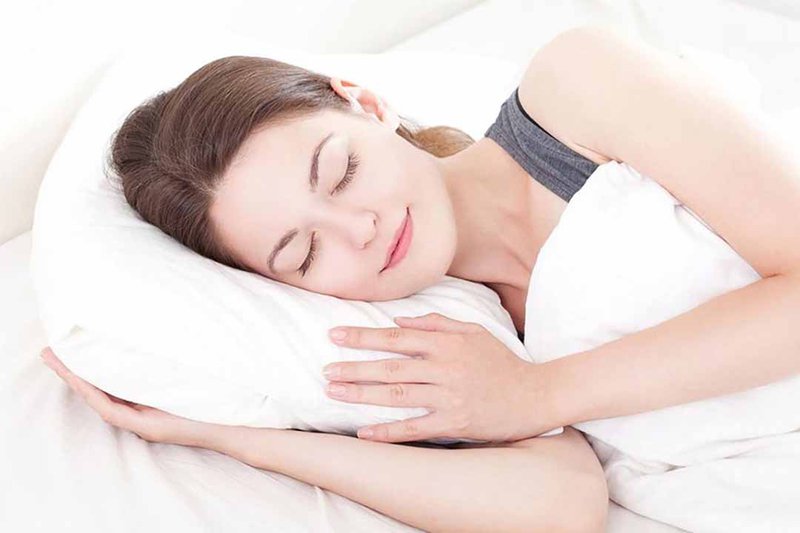In today’s fast-paced world, many people struggle with sleep problems, ranging from difficulty falling asleep to staying asleep through the night. While there are numerous strategies to improve sleep quality, one of the most effective and accessible methods is regular exercise. Understanding how physical activity impacts sleep can help individuals develop a routine that promotes better rest and overall well-being.
The Science Behind Exercise and Sleep
Exercise influences sleep in several ways, primarily through its effects on the body’s internal clock, or circadian rhythm, and the regulation of stress hormones. Here’s how:
Regulation of Circadian Rhythm: Physical activity helps synchronize the circadian rhythm, the body’s internal clock that dictates sleep-wake cycles. Exposure to natural light during outdoor exercise further reinforces this cycle, making it easier to fall asleep and wake up at consistent times.
Reduction of Stress Hormones: Exercise reduces levels of cortisol, a hormone associated with stress, and increases the production of endorphins, which promote feelings of well-being and relaxation. Lower cortisol levels can lead to more restful and uninterrupted sleep.
Increase in Body Temperature: Physical activity raises body temperature, and the subsequent drop in temperature after exercise can trigger feelings of sleepiness, helping individuals fall asleep faster.

Benefits of Exercise for Sleep Quality
Engaging in regular physical activity has several notable benefits for sleep:
Improved Sleep Latency: Regular exercise can reduce the time it takes to fall asleep, known as sleep latency. People who exercise frequently often find it easier to drift off at night.
Enhanced Sleep Duration: Exercise can increase the overall duration of sleep, ensuring individuals get enough rest each night. Consistently getting the recommended 7-9 hours of sleep can improve health and daytime functioning.
Better Sleep Efficiency: Sleep efficiency refers to the amount of time spent asleep compared to the total time spent in bed. Regular exercisers tend to have higher sleep efficiency, meaning they spend less time lying awake in bed.
Deeper Sleep Stages: Physical activity promotes deeper sleep stages, such as slow-wave sleep, which is essential for physical and mental restoration. Deep sleep helps repair tissues, strengthen the immune system, and consolidate memories.
Types of Exercise for Better Sleep
While almost any form of physical activity can improve sleep quality, certain types of exercise may be particularly beneficial:
Aerobic Exercise: Activities like walking, running, cycling, and swimming can significantly improve sleep quality. Aerobic exercise raises heart rate and promotes cardiovascular health, which has a positive impact on sleep.
Strength Training: Resistance exercises, such as weightlifting or bodyweight exercises, can also enhance sleep. Strength training helps build muscle, improve metabolism, and regulate hormones, all of which contribute to better sleep.
Yoga and Stretching: Yoga combines physical postures, breathing exercises, and meditation, which can reduce stress and promote relaxation. Stretching before bed can help release muscle tension and prepare the body for sleep.
Moderate-Intensity Activities: Engaging in moderate-intensity activities, such as brisk walking or dancing, is effective for improving sleep without the risk of overstimulation that might come from high-intensity workouts close to bedtime.
Timing of Exercise
The timing of exercise can influence its effects on sleep. Here are some general guidelines:
Morning Exercise: Exercising in the morning can help set the circadian rhythm for the day, leading to better sleep at night. Morning workouts boost energy levels and mood, which can improve daytime productivity and lead to more restful sleep.
Afternoon Exercise: Afternoon exercise can help utilize the body’s natural peak in physical performance. It can also aid in reducing stress accumulated throughout the day, contributing to better sleep at night.
Evening Exercise: While some people worry that evening exercise might interfere with sleep, moderate-intensity exercise a few hours before bed can still be beneficial. However, high-intensity workouts should be avoided close to bedtime as they may increase adrenaline levels and body temperature, making it harder to fall asleep.
Creating an Exercise Routine for Better Sleep
To maximize the sleep benefits of exercise, consider the following tips:
Consistency: Regularity is key. Aim for at least 150 minutes of moderate-intensity or 75 minutes of high-intensity exercise each week, spread across most days.
Balance: Incorporate a mix of aerobic, strength, and flexibility exercises into your routine to address various aspects of physical health and sleep.
Listen to Your Body: Pay attention to how your body responds to different types and times of exercise. Adjust your routine based on what works best for your sleep patterns and overall well-being.
Wind Down: Complement exercise with a relaxing pre-bedtime routine. Activities like reading, taking a warm bath, or practicing mindfulness can signal to your body that it’s time to wind down.
Exercise is a powerful tool for enhancing sleep quality. By regulating the circadian rhythm, reducing stress hormones, and promoting physical and mental relaxation, regular physical activity can help individuals achieve deeper, more restful sleep. Integrating a balanced exercise routine into daily life, while paying attention to the timing and type of activities, can lead to significant improvements in sleep and overall health. As always, consult with a healthcare professional before starting any new exercise regimen, especially if you have existing health conditions or concerns. By prioritizing both exercise and sleep, you can pave the way for a healthier, more energized life.


















